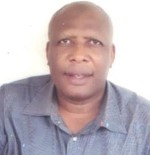on the Cost of Building Projects
in South-East Nigeria
FEATURED PAPER
By Okechukwu Ekwelem1, Dr. Kevin C. Okolie2, Dr. Fidelis O. Ezeokoli2 and Michael I. Okongwu2
1Physical Planning Unit, University of Nigeria, Nsukka, Nigeria
2Department of Building, Nnamdi Azikiwe University, Awka, Nigeria
ABSTRACT
The study assesses the impact of risk management techniques on the cost of building projects in South-East Nigeria. It was survey-based research; the study was effected via literature review and a well-structured questionnaire. Likewise, interviews were carried out to substantiate the findings of the questionnaire survey. The study was conducted in South-East Nigeria specifically: Anambra, Imo, Enugu, Abia and Ebonyi states for a period of 6 months. Being a survey research, questionnaires containing information relating to risk management were randomly administered to main players within the built environment, particularly clients, contractors and consultants in the South-East, Nigeria. Accordingly, a total of 322 questionnaires were administered while 284 copies were completed, returned and found useful. This corresponds to a response rate of 88%. The data were analyzed using Relative importance index and ranked appropriately. The study found out that project cost management (3.81), project team can maintain a focus on the critical outcomes (3.79), Contribute to project success by establishing a list of internal and external risks (3.77) are the leading impacts of risk management techniques on the cost of building projects in in South-East Nigeria. The study concluded by recommending that in order to improve the chance of success and reduce potential risks associated with building construction projects in Nigeria, risk management should be an important part of the decision-making process for a construction enterprise.
Keyword: Risk Management, Procurement System, Risk Management index (RMI), Management process (RMP),
1.0: INTRODUCTION
Dealing with risks and uncertainties is usually a problem for contractors, builders and clients. This problem might end up with substantial financial losses for both parties. The sources of risks and uncertainties in a project are several. And not only is the size of a project the main factor that causes risk, but there are also other factors such as cash flow, underestimation of direct costs, and quality problems (Morgan, 2014). Risks and uncertainty often involve many participants in a project. And each participant uses his own methods of analyzing and managing his scope relevant risk items. For whatever method used, it should objectify and quantify the risks in a project and provide the measurable means of diversifying or sharing the risks among the project participants. The willingness of a participant to accept risks often reflects the professional competence of that participant as well as his tendency to risk. Since usually each participant tries to minimize his own risks, conflict arises between the participants, and sometimes this conflict can be detrimental to the project.
Risk management is an important part of the decision-making process in construction and now widely accepted as a vital tool in the management of projects (Kangari 1995 cited in Wenzhe Tang et al., 2007). Risk management is a complicated process that interrelates with many other processes in the construction industry and on construction projects (Alexander, 1998; Chapman, 1997; Grey, 1995 cited by Holland, 2006). Investigating project risks includes studying potential events that may affect the scope, cost, time, or performance of the project’s objectives. Investigating potential risks requires the collaboration of all disciplines contributing to the project. Technical, managerial, financial, and administrative departments of the participating firms need to cooperate to identify and respond to expected risk events. This integrative process needs practical experience to adapt the required environment (Smith, 1999 cited in Nnadi and Ugwu, 2014).
In Nigeria, the construction industry was the dominant contributor to the nation’s GDP in the 1980s, accounting for about 70% of the GDP (Planning Committee on the National Construction Policy, 1989). This made the industry very strategic to Nigeria’s developmental efforts. Unfortunately, however, the industry has been bedeviled by a combination of low demand and consistent low productivity and poor performance over the years (Edmond, 2015). This has reduced its contribution to the national economy to a mere 8.91% of the GDP in 2013 (Project Management Institute 2008). Over the world, construction activity is regarded as the principle sign of growing economic activity. Risks and uncertainty are inherent in all construction works, no matter the size of the project. Despite the fact that the construction industry in Nigeria is a vital contributor to the process of development, the industry is still characterized by under-performance when compared with other industries worldwide. The general situation observed currently in building construction in developing countries is that the output of a construction company is usually characterized by poor quality work, cost and time overruns including inadequate attention to health and safety.
More…
To read entire paper, click here
How to cite this paper: Ekwelem, O., Okolie, K.C., Ezeokoli, F.O., Okongwu, M.I. (2021). Assessing the Impact of Risk Management Techniques on the Cost of Building Projects in South-East Nigeria; PM World Journal, Vol. X, Issue IX, September. Available online at https://pmworldlibrary.net/wp-content/uploads/2021/09/pmwj109-Sep2021-Ekwelem-Okolie-Ezeloki-Okongwu-impact-of-risk-management-on-building-projects1.pdf
About the Authors

Ekwelem Okechukwu
Nsukka, Nigeria
![]()
Q.S. Ekwelem Okechukwu holds a bachelor’s degree in Quantity Surveying from Enuguy State University, Enugu State Nigeria. A master’s degree in Construction Management from Nnamdi Azikiwe University (NAU) Awka, and he is presently rounding up his Doctorate degree in Construction Management. In NAU, Awka. He is a member of Nigeran Institute of Quantity Surveying, a registered Quantity Surveyor with Quantity Surveyours Board of Nigeria. He is also a Certified International Project Manager (CIPM), Fello of the American Academy of Project Management FAAPM, An Asociate of the Nigerian Institute of Chatarterd Arbitrators (ACArb) and a fellow of the institute of Coporate Administration of Nigeria. Q.S Ekwelem can be contacted at okechukwu.ekwelem@unn,edu.ng

Dr. Kevin Chuks Okolie
Anambra State, Nigeria
![]()
Prof. Kevin Chuks Okolie holds a Doctor of Philosophy Degree in Construction Management from Nelson Mandela Metropolitan University, Port Elizabeth South Africa. His research interest lies in the development of Building Performance Evaluation Methodology, Health and Safety Management and Built Asset Management Systems. His published papers and articles on Construction and Facilities Management have appeared in many international conferences and peer reviewed journals. Prof Okolie can be contacted at kc.okolie@unizik.edu.ng

Dr. Fidelis Okechukwu Ezeokoli
Anambra State, Nigeria
![]()
Dr. Fidelis Okechukwu Ezeokoli is a Lecturer in the Department of Building, Nnamdi Azikiwe University with vast experience in building construction and management. He has successfully delivered a number of building projects to time, desired quality and within the client’s budget He holds a Doctor of Philosophy Degree in Construction Management from Nnamdi Azikiwe University, Awka, Nigeria. His research interests are in flood resilient buildings, building materials and project management. He is a member of the Nigerian Institute of Building (MNIOB) and is registered with the Council of Registered Builders of Nigeria (CORBON). Dr Ezeokoli can be contacted at okeyezeokoli@unizik.edu.ng

Michael Ikechukwu Okongwu
Anambra State, Nigeria
![]()
Bldr. Okongwu Michael Ikechukwu is a Graduate Assistant in the department of Building Nnamdi Azikiwe University, Awka. He obtained a Bachelor of Science from Nnamdi Azikiwe University Awka, Higher National Diploma and National Diploma from Abia State Polytechnic Aba, Abia State. He is presently rounding off his MSc. programme in Construction Management in Nnamdi Azikiwe University, Awka. His research interests are in housing delivery, building materials and construction management. He is a member of the Nigerian Institute of Building (MNIOB) and is registered with the Council of Registered Builders of Nigeria (CORBON). Bldr. Okongwu can be contacted at im.okongwu@unizik.edu.ng









